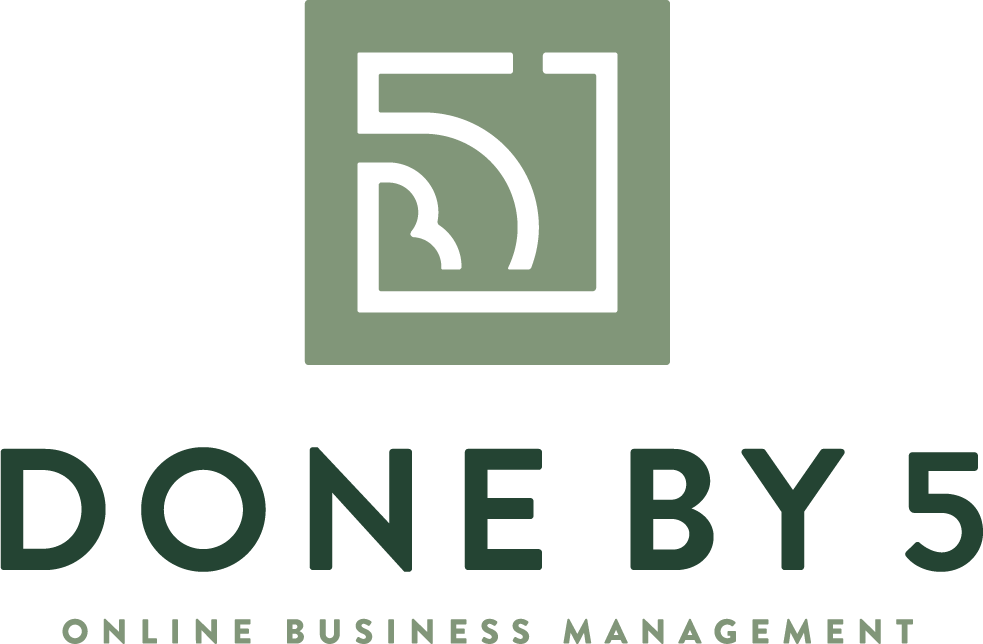Why Bookkeeping is the Backbone of Your Business (Even If You Hate It)
Bookkeeping is the backbone of any business because it gives you insight into WHERE you should be spending your time. It also helps provide benchmarks and goals based on what’s happening in the now. Without accurate financial records, you’re essentially flying blind, making decisions without the full picture. Bookkeeping is more than just tracking income and expenses—it’s about financial clarity, strategic decision-making, and long-term business success.
The Danger of Bad Bookkeeping
I’ve seen it all—properly maintained books that give business owners clarity and confidence, and complete disasters where financial reports tell the wrong story. When your books are in disarray, the reports you rely on could be misleading, whether painting an overly positive or unnecessarily dire picture. The last thing you want is to make operational decisions based on inaccurate data.
Bad bookkeeping can lead to more than just confusion—it can cause major financial and legal headaches. If your numbers are incorrect, you could face tax penalties, cash flow issues, and even trouble securing business loans. Plus, it’s much harder to identify profitability trends, track expenses, or plan for growth when your books are a mess. Regularly reviewing and reconciling your financial data ensures that you’re always working with the most accurate and up-to-date information.
Common Bookkeeping Mistakes
One of the biggest mistakes small business owners make is mixing personal and business transactions. It may seem like a minor issue, but it creates unnecessary confusion, complicates tax time, and makes it harder to see the true financial health of your business. Keeping separate accounts is an easy but critical step.
Another common pitfall is failing to track receipts or categorize expenses properly. This can lead to lost deductions, tax headaches, and inaccurate financial reports. Many business owners also wait until tax season to get their books in order, which can result in rushed, error-prone financial records. Instead, bookkeeping should be a consistent habit—just like marketing or customer service.
Additionally, small businesses often neglect reconciling their bank accounts regularly. Reconciling ensures that what’s recorded in your books matches what’s actually in your accounts, preventing errors, fraud, or missed transactions.
What If Bookkeeping Overwhelms You?
If bookkeeping feels overwhelming or numbers just aren’t your thing, the best approach is to start with educating yourself on the basics. As a CEO, you NEED to know your numbers, even if you’re not handling the day-to-day details. That said, outsourcing your bookkeeping can be a game-changer—it frees you up to focus on what you do best in your business. And trust me, even as a bookkeeper, I outsource my own bookkeeping!
One of the best things you can do is work with a professional who can help set up proper financial systems and processes. A bookkeeper can keep your records organized, generate financial reports, and ensure that everything is tax-compliant. Meanwhile, you can spend your time focusing on revenue-generating activities instead of stressing over numbers.
If hiring a bookkeeper isn’t in your budget, consider using automation tools that streamline bookkeeping tasks. Many software programs can automatically categorize transactions, send invoice reminders, and generate financial reports with minimal effort on your part.
Tools & Systems That Make Bookkeeping Easier
I highly recommend using bookkeeping software like QuickBooks Online. The cost is well worth it, especially if you’re taking a DIY approach. Automation features can save you time and ensure consistency in your records.
There are also many other tools available that can simplify bookkeeping, such as:
Receipt management apps like Dext (formerly Receipt Bank) and Expensify to track expenses effortlessly.
Time-tracking software like Toggl or Clockify for businesses that bill by the hour.
Project management tools like Asana or Trello to track financial tasks and deadlines.
The key is to set up a system that works for your business—one that makes bookkeeping as easy and painless as possible.
The Power of a Monthly Admin Day
One of my biggest recommendations is setting up a Monthly Admin Day to knock out tedious business tasks, including bookkeeping. I like to do mine on a Friday—it allows me to wrap up the week, tackle the boring stuff, and head into the weekend knowing I’ve taken care of all that financial ‘crapola.’
A Monthly Admin Day is the perfect opportunity to:
Reconcile bank accounts and credit cards
Review financial reports (profit & loss, cash flow, balance sheet)
Send invoices and follow up on unpaid bills
Organize receipts and expense tracking
Make estimated tax payments (if needed)
By dedicating a specific day to these tasks, you can avoid the stress of scrambling at tax time or wondering where your money went. Consistency is key to staying financially organized.
Final Thoughts
Good bookkeeping isn’t about tracking every penny just for the sake of it—it’s about having clarity and control over your business. By keeping your books in order, you’re making sure you always know exactly where things stand, so you can make smarter, more informed decisions.
The more proactive you are about bookkeeping, the more confident you’ll feel in your business. Instead of reacting to financial surprises, you’ll be able to anticipate challenges, plan for growth, and make strategic moves that support long-term success.
✅ Quick Action Step: Schedule a Monthly Admin Day in your calendar right now. Dedicate a few hours to reviewing your numbers, organizing your finances, and setting up any necessary bookkeeping processes. You’ll feel so much better heading into your next business decision with confidence!
←BACK
DON’T MISS THE LATEST POSTS
BUSINESS
How an OBM Can Transform Your Online Business Operations →
PRODUCTIVITY
Why Every Online Entrepreneur Needs an OBM →
TOOLS
Scaling Your Online Business: A Guide to Working with an OBM →
BUSINESS
How an OBM Can Help Your Online Business Thrive →




